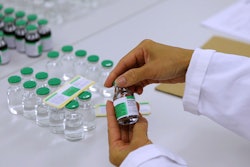
It is not breaking news to say that there are numerous supply chain disruptions in the medical industry throughout the pandemic. But some can wonder if there are real effects coming from these disruptions on the patient care side of things? According to a new survey from U.S. Pharmacopeia, 95% of physicians in the United States say that the Coronavirus (COVID-19) revealed vulnerabilities that are likely not to dissipate after the pandemic subsides. Ninety percent of those surveyed are worried that the supply of global medicines are not reliable in a time of crisis and 83% say drug shortages have become a significant problem in recent years.
Per PR Newswire:
- Physicians working in underserved communities were more likely to report negative outcomes from medication shortages than physicians who do not serve those vulnerable communities (37% vs. 29% reported negative outcomes "often" or "sometimes" from such shortages), and physicians working in underserved communities were more likely to recommend non-drug alternatives when shortages occurred during the previous 18 months (32% vs. 23%).2 Misinformation on the internet, social media, and the news also makes it more difficult to treat patients, according to 94% of survey respondents.
Most physicians surveyed (62%) believe significant reliance on other countries for medicines is among the biggest contributing factors to possible medicine shortages. More than four out of five (83%) believe the U.S. is too dependent on medicines manufactured in other countries, and 90% say more medicines need to be produced in the U.S.












